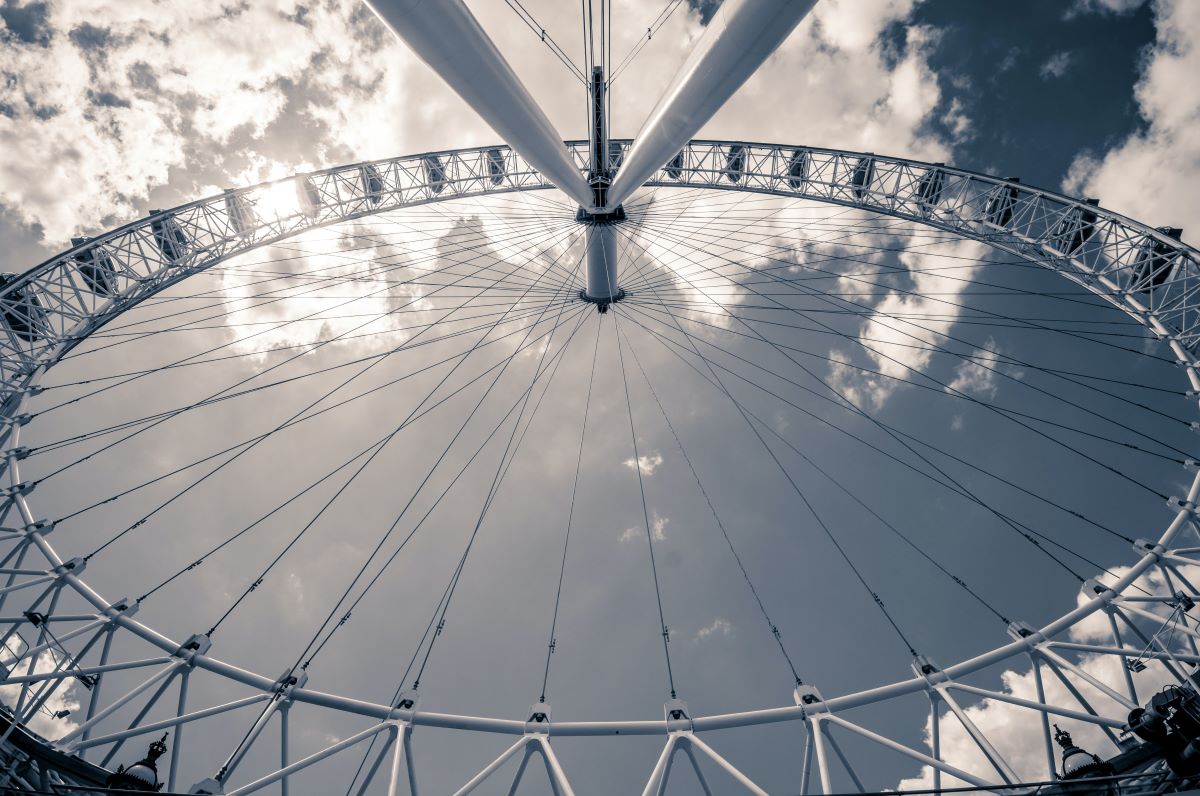
18 Sep Going in circles and karma at work
This is an article about karma at work. And while I seem to spend a lot of time these days reminding people to breathe, I promise I will not tell you to meditate.
Oh, I’m sure we should, probably don’t and likely won’t.
That said, work is full of traps that lead to mild-grade suffering. A misstep here, a slight there, a jab from out of nowhere. And we jab back, then complain about the next poke. This happens daily, blocking momentum and our most creative thoughts.
That’s what I mean about karma. But karma isn’t punishment. It’s the loop – the hamster wheel of reaction, and repetitive thoughts.
How do I know?
I have hundreds of recordings and books on the subject. And I’ve listened to and read them all. Some twice. A few a lot. You might call me expert. But let me clarify.
I am an expert in not meditating.
And because my avoidance tactics are sophisticated and clever, I’ve also become an expert in karma, that endless loop of reaction.
Why?
Because sitting doing nothing is excruciating. And boring. But not the Zoom meeting, Netflix streaming boring. This is I want to scratch my eyeballs out boredom. The gap between constant thinking and no thought feels insurmountable.
And work only amplifies the contrast. The dynamic, messy and frenetic energy runs counter to the focus and patience needed to sit quietly and not think for five minutes.
Purists would say that’s the point.
But one does wonder: have any of them ever had a job?
The good news is the cycle of karma breaks the moment someone decides not to react or poke back. The bad news is that’s probably got to be you. I’m 99% sure of that.
I learned that the hard way when I attended a meditation retreat led by a master teacher, one I’d listened to a lot. Feeling burned out from the politics and silliness at work, I entered the hotel lobby really hoping the two days would turn things around for me.
“Is it just you checking in?” the front-desk clerk asked as I reached into a large purse for my credit card.
I looked down at the purse, then the full-size suitcase and finally my backpack, which was stuffed with my work laptop, my personal laptop, a tablet, and several notebooks.
Jeez.
“Yes – just me,” I answered vaguely.
Just me.
And apparently all my baggage.
I had lugged all this stuff to a retreat where I would sit with some nice people, do very little while listening to a wise man. Over a weekend. At a hotel twenty miles from my house.
In hindsight, I could have skipped the retreat. Everything I needed to learn was in that hotel lobby. Nevertheless, I unpacked the contents for years: the drama from work and the mindless worry, along with things we never use, but think we might need one day.
That’s because we drag those overstuffed backpacks everywhere. Even working from home.
In all that unpacking, however, it occurred to me there’s another option:
We could just leave that junk behind.
And we can adapt what my wise friend Maggie calls ‘A Day at the Lake.’
More than once, I’ve asked Maggie to run for office, even though I have no idea her politics and don’t care. She’s one of the most principled and dynamic leaders I’ve ever known. I’d follow her anywhere.
Yet she shared with me that despite giving work and home 150%, it never felt like enough. She’d catch herself managing her home and family the same way she ran any big project, with precision and speed. And once kids were bed, she hopped back on her laptop to keep driving things forward at work.
After a few years running at this pace, she found herself getting bored and restless. And tired.
Really tired.
On a hunch, possibly informed by thousands of hours of not meditating, I asked Maggie when she felt most like herself.
She got very quiet. Then her shoulders relaxed as her face lit up. And she described how she felt in the summer with her two small kids and husband at the lake.
The warm days were easy and unhurried. The four of them played together for hours, swimming, laughing, playing games, eating taboo snacks. On those days at the lake, she felt light-hearted and free. Free from constant thinking and keeping score. Free from her own mind insisting this wasn’t enough.
It sounded magical, and a lot like bliss.
A Day at the Lake has become a mantra, at once a sense memory and a welcome nudge. The words remind Maggie that it’s OK to catch her breath. And both at home and at work, they unlock space and patience, especially when things feel nuts. Even if only for a few moments.
“You’d be proud of me,” she said recently.
Oh for sure.
But inspired is a better word.
And not thinking, however briefly, seems to be vital for clear thoughts. That’s a paradox, so don’t think about it too hard.
Instead, let’s reverse some assumptions. Maybe we don’t have to retreat from the mess or wait for a tranquil home in a parallel universe to interrupt the cycle of rushing and reacting. That cycle of karma (and suffering) at work.
It seems we can borrow from the lives we’re already living, and bring a familiar bit of space and sanity right into the mess. Then, ironically, we probably could meditate. But in the meantime, I’ll keep reminding us to breathe.
carolyn solares
I help people re-wire what they know to do hard new things.
Yes, at work.
Work with me at murphymerton.
Teams and Groups | One on One
Connect with me on LinkedIn
Photo by Jonathan Ford on Unsplash
